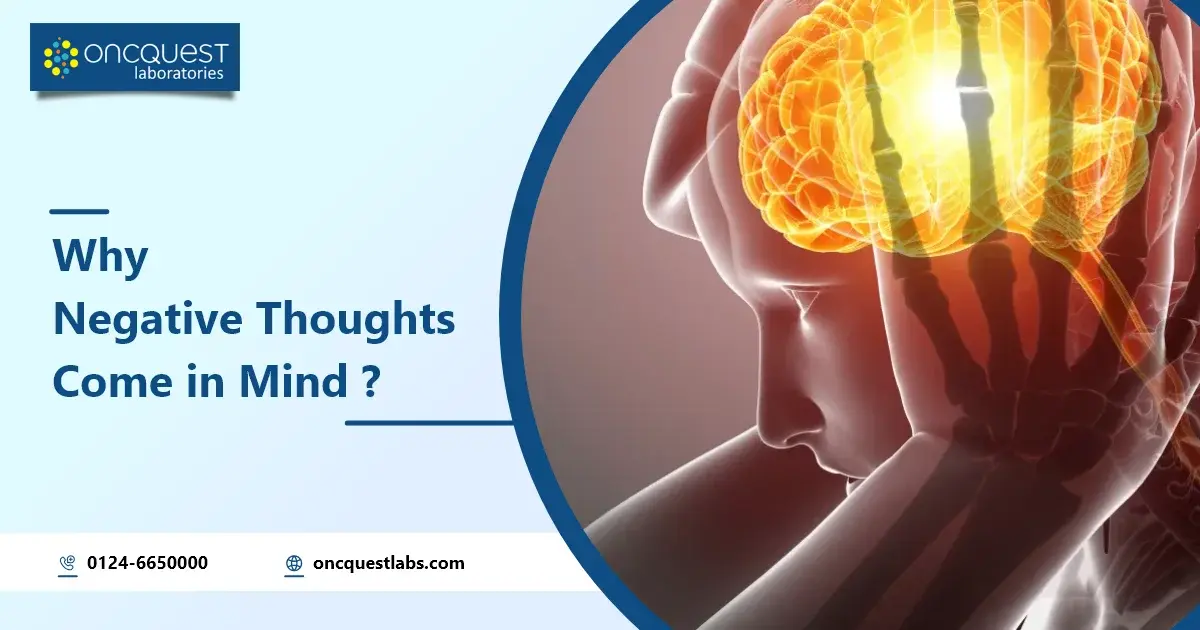Coffee, one of the most beloved beverages worldwide, holds a prominent place in the daily routines of millions. From its origins in ancient Ethiopia to its current global status, coffee has evolved into a cultural and social phenomenon. Revered for its rich aroma and stimulating effects, coffee is enjoyed in various forms, from a morning pick-me-up to a social drink shared with friends. However, while coffee offers numerous benefits, it also comes with potential side effects. Understanding both the positive and negative impacts of coffee consumption is crucial for making informed decisions about incorporating this popular beverage into a healthy lifestyle. This exploration delves into the benefits and side effects of drinking coffee, providing a comprehensive guide to its effects on health and well-being.
Contents
- 1 Nutrition Value of Coffee
- 2 Different Types of Coffee
- 3 Benefits of Drinking Coffee
- 3.1 Mental Alertness and Cognitive Function
- 3.2 Physical Performance
- 3.3 Metabolic Boost
- 3.4 Disease Prevention
- 3.5 Liver Health
- 3.6 Antioxidant
- 3.7 May Protect Against Alzheimer’s and Dementia
- 3.8 Lowers Risk of Parkinson’s Disease
- 3.9 Aids in Weight Management
- 3.10 Reduces Risk of Gallstones
- 3.11 Enhances Athletic Performance
- 3.12 Improves Skin Health
- 4 Side Effects of Drinking Coffee
- 5 Benefit Coffee for Skin
- 6 Coffee for Weight Loss
- 7 How Many Calories in a Cup of Coffee
- 8 Conclusion
- 9 FAQ
Nutrition Value of Coffee
| Nutrient | Amount per 100g |
| Calories | 0-2 kcal |
| Protein | 0.3 g |
| Fat | 0 g |
| Carbohydrates | 0 g |
| Fiber | 0 g |
| Sugars | 0 g |
| Caffeine | 40 mg |
| Calcium | 2 mg |
| Iron | 0.01 mg |
| Magnesium | 3 mg |
| Phosphorus | 3 mg |
| Potassium | 49 mg |
| Sodium | 2 mg |
| Folate | 2 mcg |
| Choline | 6.2 mg |
| Niacin (Vitamin B3) | 0.5 mg |
This table reflects the nutritional profile of plain black coffee. It highlights that black coffee is low in calories and contains minimal amounts of essential nutrients, with caffeine being the primary active ingredient. The exact values can vary slightly based on the type of coffee bean and preparation method.
Different Types of Coffee
Coffee comes in a variety of types and styles, influenced by different brewing methods, bean origins, and preparations. Here’s a breakdown of some of the most popular types of coffee drinks:
Espresso
A concentrated form of coffee, made by forcing hot water through finely-ground coffee beans. It’s the base for many other coffee drinks.
Americano
Made by diluting a shot of espresso with hot water, resulting in a strength similar to drip coffee but with a different flavor profile.
Cappuccino
A classic Italian coffee drink made with equal parts espresso, steamed milk, and frothed milk. Often sprinkled with cocoa powder or cinnamon.
Latte
Similar to a cappuccino but with more steamed milk and less foam, resulting in a creamier texture.
Flat White
Originating in Australia or New Zealand, this drink is similar to a latte but with a thinner layer of microfoam, allowing the espresso flavor to dominate.
Macchiato
Espresso ‘stained’ with a little milk. There are variations including the Latte Macchiato, which is mostly steamed milk marked with an espresso.
Mocha
A chocolate espresso drink with steamed milk and foam. It can be topped with whipped cream or marshmallows and is a popular choice for those who enjoy sweeter, creamier coffee.
Turkish Coffee
Prepared using very finely ground coffee beans unfiltered, boiled with sugar and cardamom in a special pot called a ‘cezve.’ It’s served in a cup where the grounds are allowed to settle.
French Press
Also known as a press pot, this brewing method uses coarsely ground coffee steeped in boiling water and then separated by pressing down a metal or plastic plunger through a mesh sieve.
Cold Brew
Coffee that is brewed with cold water over a period of 12 to 24 hours and served cold. Known for its smooth, mild flavor and reduced acidity.
Iced Coffee
Typically brewed coffee that is cooled down and served over ice, often with milk, cream, or sweeteners.
Vienna Coffee
A traditional cream-based coffee where espresso is mixed with whipped cream instead of milk and sugar for a rich, decadent flavor.
Affogato
More of a dessert coffee, an affogato involves a scoop of vanilla ice cream or gelato topped with a shot of hot espresso.
Ristretto
A “short” shot of espresso made with the same amount of coffee but about half the amount of water, resulting in a more concentrated and bold flavor.
These varieties offer diverse experiences, catering to different palates and preferences, whether you prefer your coffee strong and black, sweet and creamy, or somewhere in between. Each type provides a unique taste and aroma, shaped by its specific preparation technique and ingredients.
Benefits of Drinking Coffee
Mental Alertness and Cognitive Function
Coffee is renowned for its ability to enhance mental alertness and cognitive function. The caffeine in coffee acts as a stimulant, blocking adenosine receptors in the brain, which prevents drowsiness and increases alertness. This effect not only sharpens concentration but also improves reaction times and general cognitive functions, making coffee a popular choice for those needing to stay focused and alert, especially during tasks that require sustained attention. Regular moderate coffee consumption can thus play a key role in maintaining cognitive performance throughout the day.
Physical Performance
Coffee is a powerful aid in boosting physical performance, primarily due to its caffeine content. Caffeine increases adrenaline levels in the body, which prepares you for enhanced physical exertion. Drinking a cup of coffee about half an hour before exercise can significantly improve performance, increasing stamina and reducing perceived effort during activities like running and cycling. This stimulant effect makes coffee a favorite among athletes and fitness enthusiasts looking to enhance their training outcomes and endurance capabilities, allowing for more intense and longer workout sessions.
Metabolic Boost
Coffee can significantly enhance metabolic rate, thanks to its caffeine content. Caffeine stimulates the body’s metabolic processes, leading to an increase in energy expenditure. This boost in metabolism helps in burning more calories, even when at rest, which can be beneficial for weight management. Regular coffee consumption can increase fat oxidation and improve thermogenesis, the process by which your body generates heat and energy from digesting food. This makes coffee a popular choice for those looking to support their weight loss efforts or maintain a healthy weight.
Disease Prevention
Regular coffee consumption is linked to a lower risk of several chronic diseases. Studies suggest that coffee drinkers have reduced incidences of Parkinson’s disease, Type 2 diabetes, and certain forms of cancer, including liver and colorectal cancers. The antioxidants and anti-inflammatory compounds in coffee are thought to play a key role in this protective effect. These compounds help combat oxidative stress and inflammation, common pathways for many chronic diseases. Thus, enjoying a daily cup of coffee might not just boost your energy levels but also contribute to long-term health benefits.
Liver Health
Coffee is beneficial for liver health, offering protective effects that can significantly reduce the risk of liver diseases. Regular coffee consumption has been linked to a lower incidence of cirrhosis, especially alcoholic cirrhosis, and liver cancer. Coffee helps in reducing liver inflammation and lowering the level of harmful liver enzymes, which are indicators of damage and inflammation in the liver. These protective benefits make coffee a valuable dietary component for maintaining liver health, highlighting its role not just as a stimulant but also as a supportive element in disease prevention.
Antioxidant
Coffee is a rich source of antioxidants, which are vital for protecting the body against damage from free radicals. These antioxidants, including chlorogenic acids and melanoidins, contribute to overall health by reducing oxidative stress and inflammation, common factors in chronic diseases. Regular intake of coffee can enhance your body’s defense against cellular damage, aging, and various health disorders. This makes coffee not only a popular energizing drink but also a beneficial beverage for boosting your antioxidant intake and supporting long-term health and wellness.
May Protect Against Alzheimer’s and Dementia
Coffee consumption has shown promising associations with a reduced risk of Alzheimer’s disease and dementia. The caffeine and antioxidants in coffee may play protective roles in brain health by inhibiting the buildup of beta-amyloid plaques and tau tangles, which are characteristic of Alzheimer’s disease. Additionally, coffee’s anti-inflammatory properties and ability to enhance insulin sensitivity and glucose metabolism may further contribute to its neuroprotective effects. While more research is needed to establish definitive causal relationships, observational studies suggest that moderate coffee consumption could potentially help maintain cognitive function and reduce the risk of age-related cognitive decline.
Lowers Risk of Parkinson’s Disease
Coffee consumption has been consistently linked to a lower risk of Parkinson’s disease, a progressive neurological disorder characterized by tremors, stiffness, and impaired motor function. The caffeine in coffee is believed to be a key factor in this protective effect, as it enhances dopamine signaling in the brain, which is crucial for motor control and movement. Studies have shown that regular coffee drinkers have a significantly reduced risk of developing Parkinson’s disease compared to non-coffee drinkers. Additionally, coffee’s antioxidants and anti-inflammatory properties may also contribute to its neuroprotective effects against Parkinson’s disease. However, individual susceptibility and genetic factors may influence this relationship.
Aids in Weight Management
Coffee aids in weight management primarily through its caffeine content, which can boost metabolism and increase fat oxidation. Caffeine stimulates the central nervous system, leading to an increase in energy expenditure and thermogenesis, the process by which the body generates heat and burns calories. This can result in a temporary suppression of appetite and a feeling of fullness, reducing calorie intake. Additionally, coffee consumption has been associated with improved physical performance during exercise, potentially enhancing calorie-burning activities. However, to achieve weight management benefits, it’s essential to consume coffee in moderation and as part of a balanced diet and healthy lifestyle.
Reduces Risk of Gallstones
Coffee consumption has been linked to a reduced risk of developing gallstones. Gallstones are hardened deposits that form in the gallbladder and can cause pain and complications. The exact mechanisms by which coffee reduces this risk are not fully understood, but several studies have shown a consistent association. It’s believed that coffee’s caffeine content may stimulate bile flow and prevent the crystallization of cholesterol, which contributes to gallstone formation. Additionally, coffee’s antioxidant properties may play a role in protecting against gallstone development. Regular, moderate coffee consumption has been suggested as a potential dietary strategy to lower the risk of gallstones.
Enhances Athletic Performance
Coffee is known to enhance athletic performance through several mechanisms. The caffeine in coffee acts as a stimulant that affects the central nervous system, leading to increased alertness and reduced perception of effort during physical activity. This can result in improved endurance, strength, and overall athletic performance. Caffeine also stimulates the release of adrenaline, which can enhance muscle contraction and mobilize fatty acids from fat tissues, providing additional fuel for prolonged exercise. Moreover, coffee’s ability to increase focus and delay fatigue allows athletes to perform at higher intensities for longer durations. Proper timing and moderate consumption of coffee can effectively support athletic endeavors.
Improves Skin Health
Coffee can contribute to improved skin health through various mechanisms. The antioxidants present in coffee, such as chlorogenic acid and melanoidins, help neutralize free radicals that contribute to aging and skin damage. These antioxidants also have anti-inflammatory properties, which can reduce redness and inflammation, making coffee beneficial for conditions like acne and rosacea. Additionally, caffeine in coffee may improve blood circulation when applied topically, reducing the appearance of cellulite and promoting a smoother skin texture. As a natural exfoliant, coffee grounds can also remove dead skin cells, leaving the skin refreshed and revitalized. Incorporating coffee into skincare routines can thus support healthier, more vibrant skin.
Side Effects of Drinking Coffee
Drinking coffee, like any dietary habit, can have both positive effects and potential side effects. While moderate coffee consumption (typically defined as 3-4 cups per day, or up to 400 mg of caffeine) is generally considered safe for most healthy adults, excessive intake or individual sensitivity can lead to various side effects. Here’s a detailed explanation of some common side effects of drinking coffee:
Insomnia and Disrupted Sleep
The primary active ingredient in coffee, caffeine, is a stimulant that can interfere with sleep patterns. Consuming coffee too close to bedtime or in large quantities can lead to difficulty falling asleep, disrupted sleep, and reduced overall sleep quality.
Increased Heart Rate and Blood Pressure
Caffeine stimulates the central nervous system, causing a temporary increase in heart rate and blood pressure. While this effect is usually mild and transient, individuals with hypertension or heart conditions may be more sensitive to caffeine’s cardiovascular effects.
Digestive Issues
Coffee can stimulate gastric acid secretion, which may lead to acid reflux, heartburn, or stomach discomfort, especially in individuals with gastrointestinal conditions like gastritis or peptic ulcers. Caffeine’s laxative effect can also increase bowel movements or cause diarrhea in some people.
Anxiety and Jitters
High doses of caffeine can trigger feelings of nervousness, restlessness, or anxiety. These effects are more likely to occur in individuals who are sensitive to caffeine or when consumed in excessive amounts.
Dependency and Withdrawal Symptoms
Regular consumption of coffee can lead to caffeine dependency, where the body becomes accustomed to caffeine’s stimulating effects. Abrupt cessation or reduction in caffeine intake may result in withdrawal symptoms such as headaches, irritability, fatigue, and difficulty concentrating.
Dehydration
While moderate coffee consumption does not significantly contribute to dehydration, excessive intake can have a diuretic effect, increasing urine production and potentially leading to mild dehydration if fluid intake is not adequately balanced.
Bone Health Concerns
Some studies suggest that high caffeine intake may interfere with calcium absorption and affect bone density, particularly in postmenopausal women. However, the evidence is mixed, and moderate coffee consumption is unlikely to have a significant impact on bone health in most individuals.
Pregnancy Concerns
Pregnant women are often advised to limit caffeine intake due to its potential effects on fetal development and pregnancy outcomes. High caffeine consumption during pregnancy has been associated with increased risk of miscarriage, preterm birth, and low birth weight.
Staining of Teeth
Coffee, especially when consumed regularly over time, can contribute to the staining of teeth. The dark pigments in coffee can adhere to tooth enamel, leading to discoloration. Proper dental hygiene, including regular brushing and dental cleanings, can help mitigate this effect.
It’s important to note that individual tolerance to caffeine varies widely, and factors such as age, health status, medication use, and overall lifestyle can influence how a person responds to coffee. Moderation and mindful consumption are key to enjoying the potential benefits of coffee while minimizing the risk of side effects. Consulting with a healthcare provider or nutritionist can provide personalized guidance on coffee consumption based on individual health considerations.
Benefit Coffee for Skin
- Antioxidant Protection: Coffee is rich in antioxidants like chlorogenic acids and melanoidins, which help protect the skin against damage from free radicals. This can reduce signs of aging such as wrinkles, fine lines, and loss of elasticity.
- Enhanced Circulation: The caffeine in coffee can stimulate blood flow, which improves skin health by energizing and brightening your complexion. Enhanced circulation can also help in the healing process of damaged skin.
- Anti-Inflammatory Properties: Coffee has anti-inflammatory effects, which can reduce redness and inflammation of the skin. This is particularly beneficial for conditions like acne or rosacea.
- Exfoliation: Coffee grounds are used as a mechanical exfoliant to remove dead skin cells, which can help refresh the skin’s appearance, leaving it smoother and more radiant.
- Cellulite Reduction: Caffeine in topical products can dehydrate fat cells by increasing blood flow to the area, which may temporarily reduce the appearance of cellulite.
Incorporating coffee, whether as a drink or in skincare products, can contribute to a healthier, more vibrant skin complexion. However, it’s important to balance consumption and be mindful of skin type, especially when applying coffee topically, as it can be harsh on sensitive skin.
Coffee for Weight Loss
Coffee can be a useful tool for weight loss due to several of its properties, particularly its caffeine content. Here’s how coffee can support weight loss efforts:
Metabolism Boost
Caffeine is a natural stimulant that increases your body’s metabolism. Consuming coffee can enhance metabolic rate by up to 11%, helping to burn more calories faster. This increase in metabolic rate is particularly significant because it helps the body burn fat more efficiently.
Appetite Suppression
Coffee may have a mild appetite suppressant effect for some people. Drinking coffee, especially in the morning or before meals, can reduce feelings of hunger for a short period. This can lead to decreased calorie intake overall, though the effect might be temporary and varies from person to person.
Enhanced Physical Performance
Caffeine stimulates the nervous system, signaling fat cells to break down body fat, but it also increases adrenaline levels in the blood, which prepares your body for intense physical exertion. Drinking a cup of coffee about half an hour before working out can enhance performance, allowing you to work out longer and at greater output, which can be beneficial for weight loss.
Fat Oxidation
Caffeine increases the rate of fatty acid oxidation. By drinking coffee, your body is more likely to use fat as fuel during activity, rather than glycogen stored in muscle. This process helps to decrease fat stores in the body and can aid weight management.
Thermogenic Effects
Coffee has thermogenic properties—meaning it helps generate more heat and energy from digesting food. This not only helps to burn calories but can also improve efficiency in weight loss efforts when combined with a balanced diet and regular exercise.
Incorporating coffee into a weight loss regimen can be effective, but it should be part of a broader strategy that includes a healthy diet and regular physical activity. Always consider how your body reacts to caffeine and adjust your consumption accordingly.
How Many Calories in a Cup of Coffee
A plain cup of brewed coffee has virtually no calories. On its own, an 8-ounce cup of black coffee typically contains around 2 calories. However, the calorie content can increase significantly when additives like sugar, milk, or cream are included. Here’s how common additions can affect the total calorie count:
- A teaspoon of sugar adds about 16 calories.
- A tablespoon of heavy cream adds about 52 calories.
- A tablespoon of half-and-half adds about 20 calories.
- A tablespoon of non-fat milk adds about 5 calories.
Therefore, if you prefer your coffee with these additives, the calories can add up quickly, depending on your choices.
Conclusion
In conclusion, coffee is a popular beverage enjoyed worldwide for its rich flavor and potential health benefits. Moderate consumption of coffee, typically defined as 3 to 4 cups per day, can contribute to improved cognitive function, enhanced physical performance, and reduced risks of certain diseases. The antioxidants in coffee offer protection against free radicals, promoting skin health and potentially lowering the risk of age-related conditions. However, individual tolerance to caffeine varies, and excessive intake can lead to side effects like insomnia, digestive issues, and increased heart rate. It’s important to balance coffee consumption with overall lifestyle choices and consult with a healthcare provider if there are concerns about caffeine sensitivity or existing health conditions.
FAQ
Is coffee good for health?
Moderate coffee consumption has been associated with several health benefits, including improved cognitive function, reduced risk of certain diseases like Parkinson’s and Alzheimer’s, and antioxidant protection.
How much coffee is safe to drink per day?
For most healthy adults, consuming 3 to 4 cups of coffee per day, which contains approximately 300 to 400 milligrams of caffeine, is considered safe and may offer health benefits. Individual tolerance to caffeine should be considered, and pregnant women or those with certain medical conditions may need to limit their intake.
What are the potential side effects of drinking coffee?
Excessive coffee consumption can lead to side effects such as insomnia, digestive issues (e.g., acid reflux), increased heart rate, and caffeine dependency. Some individuals may also experience anxiety or jitteriness with high caffeine intake.
Can coffee improve skin health?
Yes, coffee contains antioxidants and anti-inflammatory properties that can protect the skin from free radical damage, reduce inflammation, and improve skin texture. When applied topically or used in skincare products, coffee can promote collagen production and help diminish the appearance of cellulite and dark circles.





